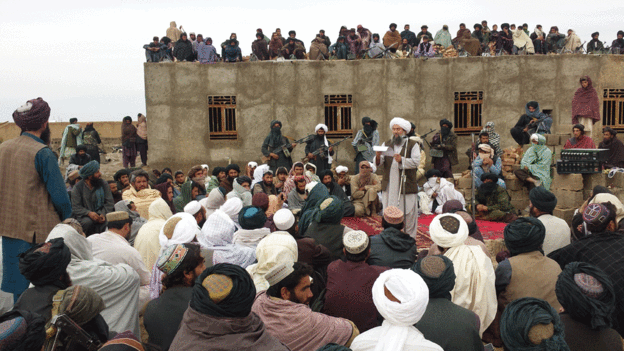Violence in Afghanistan: Victims continue to fall without any progress in peace negotiations

In the latest attack on Afghan security forces, five people
were killed in clashes between police when two gunmen attacked a police station
in the western province of Herat on Saturday. No one has yet claimed
responsibility for the attack, but it comes two days after the Taliban launched
a series of terrorist attacks on security checkpoints in four Afghan provinces,
killing 32 members of the security forces.

This escalation in the frequency of attacks between the Afghan security forces and the Taliban has cost both parties heavy losses and has not resulted in significant progress on the ground for either side.
It is usual for fighting to be reduced during the winter due to the low temperatures and snowfall. However, this winter, fighting has continued to wane amid stumbling efforts to persuade the Taliban to sit at the negotiating table for peace talks with the Afghan government, despite their frequent meetings with US diplomats to discuss the withdrawal of US troops from Afghanistan and the release of Taliban prisoners.
The terrorist movement carried out deadly attacks in the northern Afghan province of Balkh, a long-standing commercial center in one of the country's most secure areas, targeting several neighboring provinces. The Taliban chose to launch attacks along the main highways linking the provinces to each other and to Kabul.
In a press statement, Nizar Ahmad al-Jurayani, head of the Afghan parliament's security and defense committee, accused the Taliban of using violence to gain more influence before sitting for any talks. He also accused Pakistan and Russia of increasing support for the terrorist movement, even as Islamabad and Moscow held consultations on the peace talks.

Russia is trying to restore its political relations with Afghanistan to what it was in the era of the People's Democratic Party of Afghanistan, which took power in 1978, when the Kremlin controlled the situation in the Central Asian country.
Russia has found the conflict between the Afghan government and the Taliban as an opportunity to increase its political influence in Afghanistan, especially as the US strategy in the region is unclear after the arrival of President Donald Trump to the White House in 2017, whose administration seeks an end to the Afghan conflict, which has cost the United States about $1 trillion.
In November 2018, Russia hosted international talks on Afghanistan aimed at helping start a dialogue between the Afghan government and Taliban leaders.
Afghan and Western officials say the appointment of Asadullah Khalid as acting defense minister and Amrullah Saleh as acting interior minister was cause for optimism, as the two promised to reorganize Afghan security forces, which have lost more than 28,000 members since 2015.
US forces in Afghanistan announced on Saturday the death of Khetab Emir, a senior ISIS leader, during a raid in Nangarhar province. ISIS, which is seen as a competitor to the Taliban, has picked up activity since the Afghan wing of the terrorist organization was founded in 2015. Emir was known for facilitating many large attacks and supplying militants with weapons and explosives.
"[Emir’s] removal helps protect innocent Afghans from future Islamic State violence and weakens their presence in Nangarhar," said Ubon Mendie, a spokesman for the US forces in Afghanistan.
Fighting against ISIS, al-Qaeda, the Taliban and other militant groups is a key goal of the US-led counterterrorism mission, in addition to the firm NATO-led support operation aimed at providing training and advice to Afghan security forces.
In October, the Taliban killed Kandahar police chief Gen. Abdel Razek during a meeting that was attended by NATO commander US General Scott Miller, although Miller was unharmed. Observers have speculated that the lack of injury to Miller only served as a warning from the terrorist group to the United States that they could reach and target US officials if they want.
Miller is known to have helped dismantle ISIS in Syria and Iraq. He has served in the US military for 35 years, spending most of that time in the Special Operations Command.
Meanwhile, the Washington Post recently reported that the Taliban is active in more than 70 percent of Afghan territory.
These complications and interventions make the Afghan conflict a dilemma that can only be resolved through intensive efforts and genuine cooperation by the international parties that seek to combat terrorism to stop the war in Afghanistan





